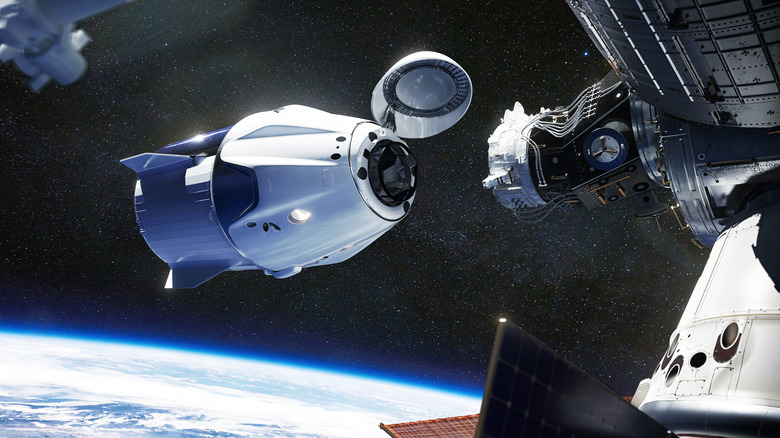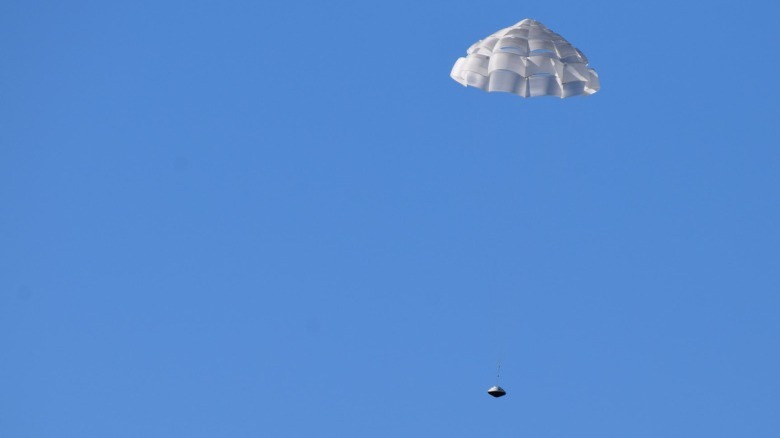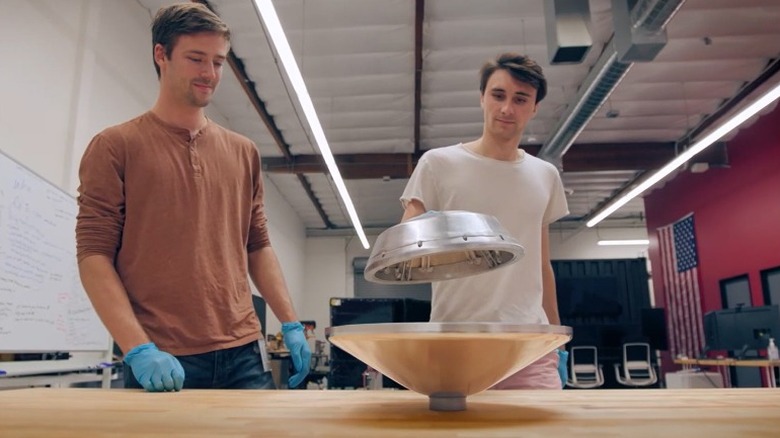Why This Start-Up Thinks Storing Containers In Space Is The Future
The future of humankind's space endeavors is promising, with various private agencies taking humans into outer space or planning to take humans into space soon. But besides taking humans for a glorified taxi ride in a craft that flies extra high, many space-tech companies have also been attracting investors, garnering roughly $7.7 billion in investments from venture capitalists in 2021 according to PitchBook — a number that has gone up 50% over the previous year.
Among the ventures that have intrigued investors is Inversion Space, a Torrance, California-based company that aims to utilize the Earth's orbit to store containers that can stay up for a period of up to five years. The company also envisions using the space surrounding the Earth for hyper-fast deliveries by propelling items into the space and then making them fall back into the atmosphere with the help of a parachute, The New York Times reports.
Inversion Space's founders, Austin Briggs and Justin Fiaschetti, are betting on the possibility of space travel becoming more economical. As it becomes cheaper and easier to reach space — and humans identify ways to facilitate lodging in space, more companies might want to send to as well as bring objects back from the Earth's orbit.
Containers designed like mini satellites
Inversion Space intends to make that possible by developing space capsules that measure four feet (48 inches) in diameter and carry payloads equivalent to a few carry-on suitcases in size. The company plans to achieve this feat by 2025 and has already begun trials by dropping smaller, 20-inches wide capsules from an airplane flying at about 3,000 feet and studying their trajectory back to the Earth's surface. Starting 2023, the company plans to commence further trials and drop capsules with a diameter of 20-inches from space into the Earth's atmosphere.
Dunking an object into the Earth's atmosphere from outer space puts it at risk of combustion. The company projects a four-foot-wide capsule that will maneuver through the atmosphere at 25 times the speed of sound. So, to ensure a soft landing, the company uses parachutes that help guide packages safely to their destination on the Earth.
The space containers have been conceptualized to come with solar panels — like satellites — that can power them. As per the founders of the startup, this power can be used to make the containers stay in orbit until recalled back to the Earth or be used to navigate them to a private space station intended for commercial transit.
Above you'll see hotfire testing of CE-1, the Inversion Space engine designed to deorbit their "Ray" capsule.
Using shortcuts in space to accelerate freight movement
If this dream is realized, one can imagine an ocean of capsules circling the Earth in its orbit. Other than storage, the founders feel these capsules can be used to transport crucial articles like life-saving organs from one part of the world to another in a few minutes or other use cases like taking a shortcut route to deliver a pizza from one end of a country to another.
The ocean of containers in the Earth's orbit can imaginably pose a potential threat to other satellites, a rising concern with the growing number of observational satellites. However, Inversion Space says the materials it is using are less reflective to avoid visual pollution. Furthermore, the capsules are supposed to come with inbuilt systems to dodge space debris in their course.
Space containers might revolutionize commercial space travel
Briggs's and Fiaschetti's dream rests firmly on space travel getting more affordable. Right now, the vehicles that carry people or equipment to or from space cost upwards of $100 million per ride. On the contrary, the startup's capsules are designed to hitch a ride on any commercial rocket for a relatively inexpensive journey.
The company also banks on estimates by Elon Musk's SpaceX, which aims to bring down the cost of launch from about $60 million on its reusable Falcon 9 rocket to merely $10 million with its upcoming rocket, Starship.
Meanwhile, the industry is also expected to thrive, with NASA selecting three companies to build multiple commercial space stations that would succeed the International Space Station (ISS). At the same time, a fourth company — Axiom Space — has earned a $140 contract from NASA to build habitable modules to extend the current ISS.
Naturally, these advancements and the participation from other companies will enrich Space tourism and launch humankind into a future where we not only store our belonging outside the Earth but also use them for shorter transits in longer journeys to far-flung areas of the universe.



